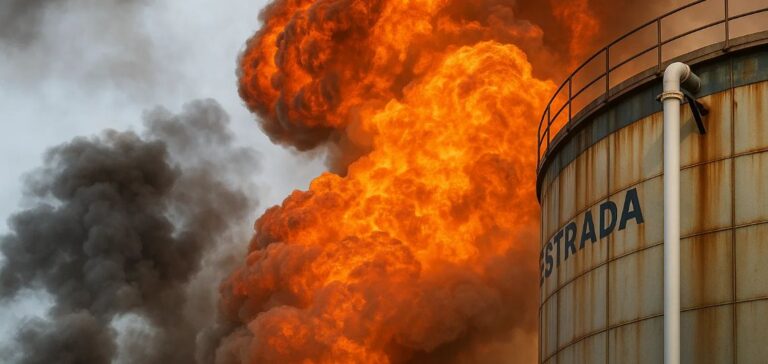A fire broke out at the Esmeraldas refinery, Ecuador’s largest crude oil processing facility, causing a temporary halt in operations. The state-owned company Empresa Pública de Hidrocarburos del Ecuador (Petroecuador) confirmed that the incident is now under control and that all personnel were evacuated safely without any injuries.
Production activities suspended
Petroecuador stated that operations at the refinery were suspended as a precaution. No official estimate has been provided regarding the duration of the shutdown. The fire, visible in several videos shared on social media, produced thick plumes of black smoke. The footage, filmed near Esmeraldas’ bus terminal, was geolocated and verified using satellite data and recognisable urban features.
Ongoing investigation into causes and damage
The Esmeraldas refinery, located on the country’s northern coast, is a strategic site for Ecuador’s oil industry. It accounts for a significant share of national refining capacity, with a nominal output of 110,000 barrels per day. Petroecuador confirmed that an investigation has been launched to determine the cause of the fire and to assess the extent of infrastructure damage.
Potential impact on domestic supply
While the company has not yet commented on the potential impact on fuel distribution, the Esmeraldas refinery plays a key role in the internal supply of refined products. A prolonged shutdown could require logistical adjustments or temporary reliance on imports. No official statement has been issued regarding possible financial losses or the timeline for restarting affected units.
“All safety measures were immediately implemented to protect employees and limit the impact on the facility,” Petroecuador said in a statement released to local media.






















